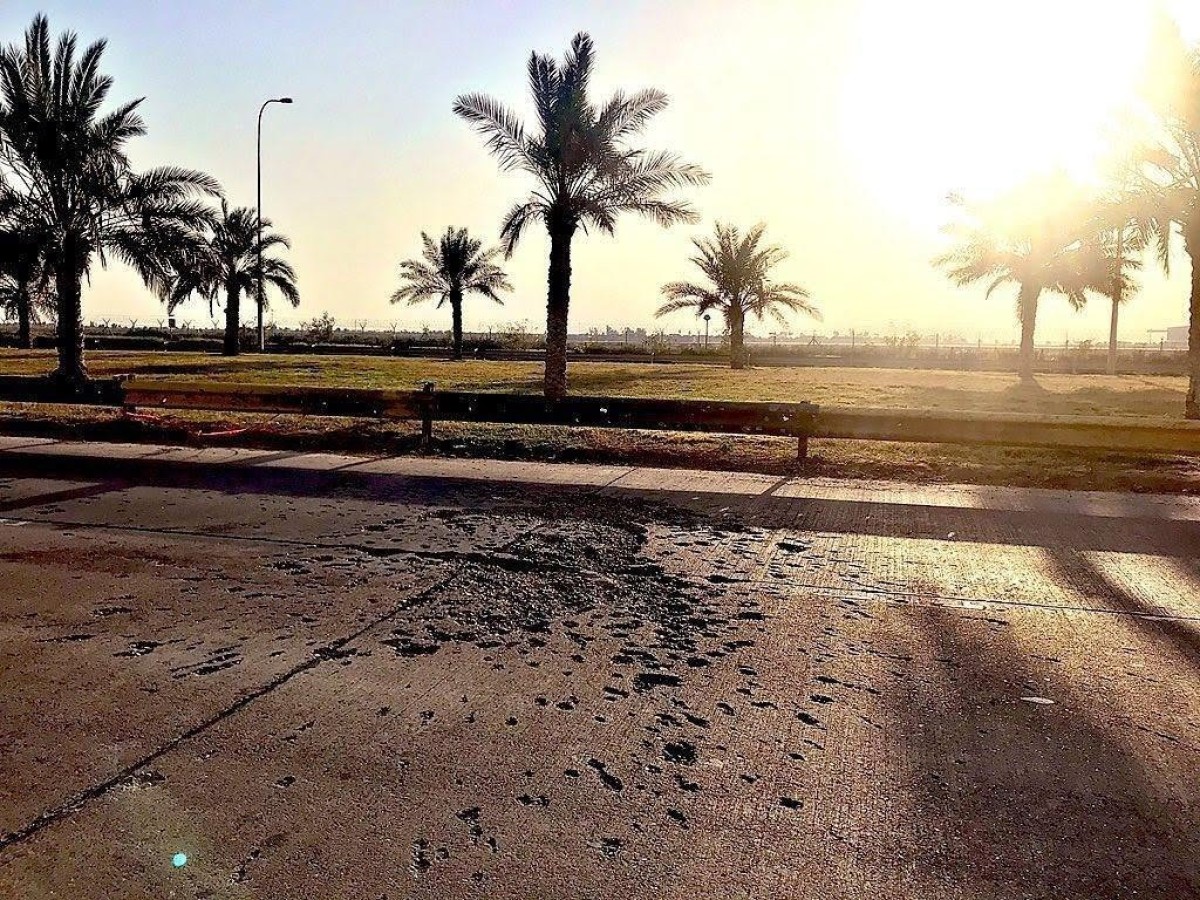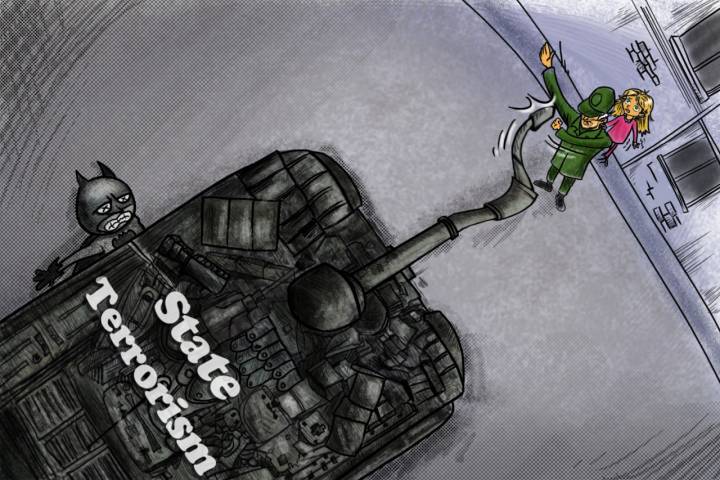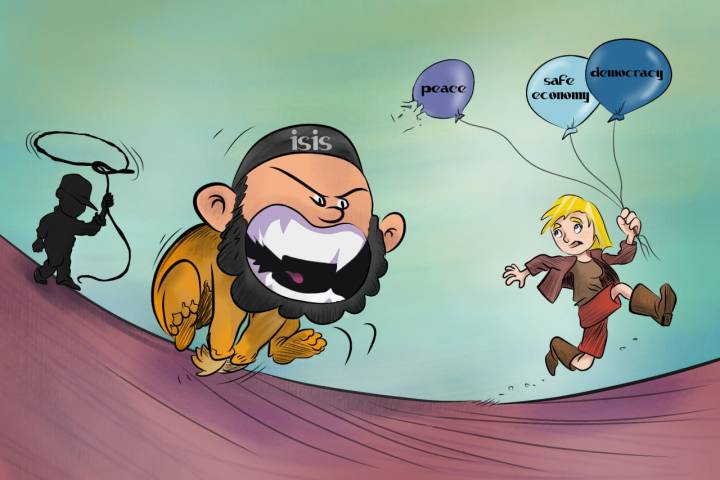The US assassination of Iran’s General Soleimani: What does international law say?
The appalling murder of General. Qassem Suleimani, Abu Mahdi Al-Mouhandis, and the other members of their convoy, which was carried out by a US drone remotely operated from the Creech Air Force Base have considerable legal repercussions. Many legal experts believe that the US terrorist regime has contravened every conceivable principle by committing that abominable crime that can be investigated and prosecuted under international law.
Since its inception, the US government has been responsible for a wide range of war crimes and crimes against humanity. What one can discern by examining the modern history of the United States is the intrinsic evil deeply rooted in the US political establishment, which evinced itself once again in Haj Qassem Soleimani’s outrageous assassination.
Martyr Haj Qassem Soleimani arrived in Baghdad at the invitation of senior Iraqi officials. After leaving the Baghdad International Airport, Gen. Soleimani was martyred in a terrorist attack on the direct orders of the US President Donald Trump. There are many legal implications which must be considered within international law:
One of the accepted international rules which were violated by the US strike was that neither Iran nor the United States has been involved in any armed conflict at the time the attack occurred. Hence, the US administration had no legal premise to carry out the strike under the Law of War. According to international law, governments are permitted to sanction the death penalty only, and only for the gravest crimes imaginable. But in the case of Gen. Soleimani’s death, no fair trial was ever convened to consider the fabricated allegations against a legendary general who vanquished ISIS terrorists across the Middle-East region.
Furthermore, Article 2 (4) of the United Nations stipulates the prohibition of the threat or use of force in international relations. The same article also prohibits the threat or use of force and calls on all Members to respect the sovereignty, territorial integrity, and political independence of other States. Only Article 51 speculates that every state has an inherent right to self-defense if an armed attack occurs against a Member of the United Nations.
The Americans and their allies seek to portray the assassination of Gen.Soleimani as an act of preemptive defense. The US government assiduously tried to put forward the fallacious and baseless claims that Gen. Soleimani was involved on 27th December 2019, attacks on US military headquarters in Iraq, and also masterminded the attack on the US embassy in Baghdad. In pursuing this fallacious assumption, Donald Trump made series of egregious claims on his Twitter account, saying that Qassem Soleimani killed or severely wounded thousands of American soldiers over a long time and conspired to kill more.
But the question remains: can the US assassination of Gen. Soleimani be considered as an act of self-defense within an armed conflict with Iran? According to Article 51 of the UN Charter, a legitimate pre-emptive operation must be only in response to an imminent armed attack, which did not exist in our case at all. Besides, the United States does not have enough evidence to substantiate its claims vis-à-vis Gen. Soleimani.
The fact is that Gen. Soleimani and the other Iranian military officials, despite all American provocations had no intention to stage any imminent or immediate attack against the US interests in Iraq or elsewhere. Donald Trump admitted that the US government should have assassinated Gen. Soleimani a long time ago and John Bolton, the former US national security, too, acknowledged that the White House had been hatching plots to kill [General] Soleimani long before his assassination in Baghdad.
Based on these statements, one can deduce that the US claim that Gen. Soleimani was about to stage an immediate attack against the American interests is entirely false and baseless.
Also, the unprovoked US attack against a top-ranking Iranian military commander who was on an official visit to Iraq constitutes a stark violation of Iraqi national sovereignty and territorial integrity.
In retrospect, the Iraqi government had authorized limited military assistance from the UK, the United States, and several other Western powers to thwart the rapid ISIS advances. That US military intervention was not intended to kill an envoy from a brotherly country who was on a state visit to Iraq.
0
The appalling murder of General. Qassem Suleimani, Abu Mahdi Al-Mouhandis, and the other members of their convoy, which was carried out by a US drone remotely operated from the Creech Air Force Base have considerable legal repercussions. Many legal experts believe that the US terrorist regime has contravened every conceivable principle by committing that abominable crime that can be investigated and prosecuted under international law.
Since its inception, the US government has been responsible for a wide range of war crimes and crimes against humanity. What one can discern by examining the modern history of the United States is the intrinsic evil deeply rooted in the US political establishment, which evinced itself once again in Haj Qassem Soleimani’s outrageous assassination.
Martyr Haj Qassem Soleimani arrived in Baghdad at the invitation of senior Iraqi officials. After leaving the Baghdad International Airport, Gen. Soleimani was martyred in a terrorist attack on the direct orders of the US President Donald Trump. There are many legal implications which must be considered within international law:
One of the accepted international rules which were violated by the US strike was that neither Iran nor the United States has been involved in any armed conflict at the time the attack occurred. Hence, the US administration had no legal premise to carry out the strike under the Law of War. According to international law, governments are permitted to sanction the death penalty only, and only for the gravest crimes imaginable. But in the case of Gen. Soleimani’s death, no fair trial was ever convened to consider the fabricated allegations against a legendary general who vanquished ISIS terrorists across the Middle-East region.
Furthermore, Article 2 (4) of the United Nations stipulates the prohibition of the threat or use of force in international relations. The same article also prohibits the threat or use of force and calls on all Members to respect the sovereignty, territorial integrity, and political independence of other States. Only Article 51 speculates that every state has an inherent right to self-defense if an armed attack occurs against a Member of the United Nations.
The Americans and their allies seek to portray the assassination of Gen.Soleimani as an act of preemptive defense. The US government assiduously tried to put forward the fallacious and baseless claims that Gen. Soleimani was involved on 27th December 2019, attacks on US military headquarters in Iraq, and also masterminded the attack on the US embassy in Baghdad. In pursuing this fallacious assumption, Donald Trump made series of egregious claims on his Twitter account, saying that Qassem Soleimani killed or severely wounded thousands of American soldiers over a long time and conspired to kill more.
But the question remains: can the US assassination of Gen. Soleimani be considered as an act of self-defense within an armed conflict with Iran? According to Article 51 of the UN Charter, a legitimate pre-emptive operation must be only in response to an imminent armed attack, which did not exist in our case at all. Besides, the United States does not have enough evidence to substantiate its claims vis-à-vis Gen. Soleimani.
The fact is that Gen. Soleimani and the other Iranian military officials, despite all American provocations had no intention to stage any imminent or immediate attack against the US interests in Iraq or elsewhere. Donald Trump admitted that the US government should have assassinated Gen. Soleimani a long time ago and John Bolton, the former US national security, too, acknowledged that the White House had been hatching plots to kill [General] Soleimani long before his assassination in Baghdad.
Based on these statements, one can deduce that the US claim that Gen. Soleimani was about to stage an immediate attack against the American interests is entirely false and baseless.
Also, the unprovoked US attack against a top-ranking Iranian military commander who was on an official visit to Iraq constitutes a stark violation of Iraqi national sovereignty and territorial integrity.
In retrospect, the Iraqi government had authorized limited military assistance from the UK, the United States, and several other Western powers to thwart the rapid ISIS advances. That US military intervention was not intended to kill an envoy from a brotherly country who was on a state visit to Iraq.
0
Abu Mahdi al-Mohandes
Abu Mahdi al-Mohandis
Abu Mahdi al-Muhandis
against
America
American
Americans
assassination
Baghdad
Crimes
Donald J. Trump
Donald Trump
Gen. Soleimani
general soleimani
General Soleimany
qasem soleimani
government
Haj Qasem soleimani
Hard revenge
hard revengre
history
International
IRAN
iranian
Iranian embassy
Iraq
Iraqi
Iraqi people
ISIS
Martyr
Martyr Soleimani
Martyrdom
martyred
middle east
military
poster soleimani
Qasem Soleimani
Qassem soleimani
severe revenge
Terrorist
terrorists
trump
UK
US
USA
War






Comment
Post a comment for this article